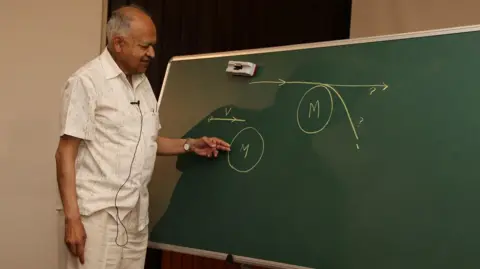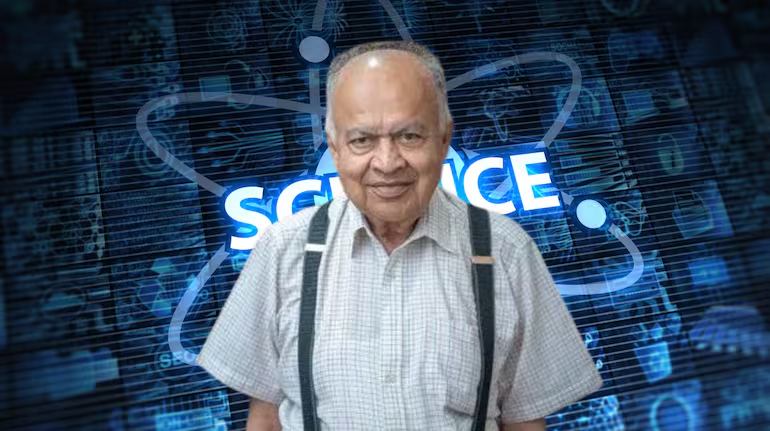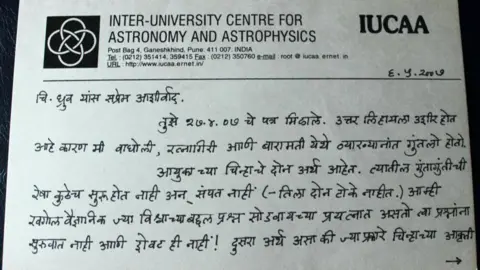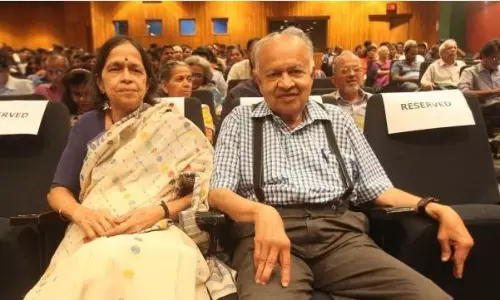The Indian Scientist Who Looked Beyond the Big Bang
In the pantheon of Indian science, few names stand as tall as Jayant Vishnu Narlikar. He was a legendary Indian scientist who challenged the Big Bang theory. From conceptualizing alternative cosmologies to pioneering science education in India, Narlikar’s legacy blends brilliance, courage, and relentless pursuit of knowledge.Though he passed away at 86, his theories, mentorship, and science initiatives still influence scientists in India and around the world.

Born in 1938, Narlikar devoted his life to expanding humanity’s understanding of the cosmos. He questioned dominant scientific ideas and laid the foundation for astronomical research in India. His work inspired generations of scholars and thinkers.
Early Life of the Indian Scientist Who Questioned the Big Bang
Jayant Narlikar, the Indian scientist who challenged the Big Bang theory, was born on 19 July 1938 in Kolhapur, Maharashtra — a town known for its rich culture and academic heritage. His father, Vishnu Vasudev Narlikar, was a renowned mathematician, and his mother, Sumati Narlikar, was a Sanskrit scholar. Growing up in a scholarly home, young Jayant was surrounded by books and intellectual talks that nurtured his curiosity.
From a young age, he displayed extraordinary intelligence and a deep fascination with the universe. This early exposure to knowledge laid the foundation for a life in science that would later reshape cosmological thinking.
How the Indian Scientist Who Challenged the Big Bang Excelled at Cambridge
Jayant Narlikar, the Indian scientist who challenged the Big Bang theory, furthered his academic journey at Cambridge University after excelling in his undergraduate studies in India. At Cambridge, he joined one of the world’s most prestigious mathematical programs, topping the rigorous mathematical tripos. It was here that he met his mentor and collaborator, Sir Fred Hoyle, a leading British astrophysicist.
Together, the duo developed a cosmological theory that boldly challenged the Big Bang model, long seen as central to mainstream physics.
The Indian Scientist Who Challenged the Big Bang: The Hoyle-Narlikar Theory
The most defining contribution of Jayant Narlikar to theoretical physics was his alternative model to the Big Bang theory. In collaboration with Fred Hoyle, he developed the Hoyle-Narlikar theory, which introduced the concept of a quasi-steady state universe.

The theory proposed that matter is continuously created as the universe expands, removing the need for a singular origin like the Big Bang. Instead of one explosive beginning, it suggested the universe has always existed and constantly renews itself.
Narlikar’s analogy from his autobiography My Tale of Four Cities makes the theory more accessible:
“Think of capital invested in a bank that compounds interest. As the interest grows, so does the capital. The universe, similarly, grows and renews itself endlessly.”
Though not widely accepted, the theory sparked interest among physicists and philosophers and remains part of key cosmology debates.
A Return to India: Building a Scientific Legacy
After years of collaboration with international scientists and gaining recognition abroad, Narlikar returned to India in 1972. He led the Theoretical Astrophysics Group at the Tata Institute of Fundamental Research (TIFR), one of India’s top science institutes.
His vision, however, extended far beyond research. His belief in accessible science led to his most impactful initiative — founding the Inter-University Centre for Astronomy and Astrophysics (IUCAA) in Pune in 1988.
IUCAA: Democratizing Science Education
From humble beginnings in a 100-square-foot office, IUCAA grew under Narlikar’s leadership into a globally respected institution for astrophysics research. As founding director, Narlikar ensured the institution became both a research hub and a center for science outreach.

Monthly public lectures, science camps, school programs, and astronomy workshops became an essential part of IUCAA’s mission. His philosophy was simple but profound:
“PhD students don’t fall from the sky. You must catch them young.”
Science educator Arvind Gupta, who worked at IUCAA, recalled how Narlikar gave him an opportunity to start a children’s science center — an initiative that lasted over a decade.
Science Fiction and Public Writing
Narlikar’s genius extended beyond academia. He was also a gifted science communicator and prolific science fiction author. His books such as Virus (2015) and Waman Parat Na Ala (1986) combined scientific insight with gripping narratives, often addressing futuristic themes like pandemics and artificial intelligence long before they became part of public discourse.
These stories, written in both English and Marathi, have been translated into several languages and remain popular among science enthusiasts and students alike.
Narlikar the Rationalist
An unwavering rationalist, Narlikar was a staunch opponent of pseudoscience and superstition. In 2008, he co-authored a paper that statistically refuted the claims of astrology, an act that earned him both praise and criticism.
Yet, for Narlikar, science was about questioning everything — even the beliefs that were most widely accepted. Whether it was astrology, homeopathy, or cosmological theories, he remained committed to rigorous scientific inquiry.
A Mentor to Many
Jayant Narlikar’s mentorship shaped the careers of numerous young scientists. One of them was Sanjeev Dhurandhar, who was part of the Indian contribution to the detection of gravitational waves in 2015.
“He gave me a tough research problem early on. I struggled for a week, and then he solved it in minutes — not to boast, but to teach and inspire,” Dhurandhar recalled.
His influence extended far beyond classrooms and laboratories. Even in his later years, he remained committed to writing blog posts, answering children’s letters, and encouraging curiosity among the youth.
The Final Days: A Life Devoted to Science
Even in his final days, Narlikar didn’t slow down. He continued responding to school children, writing about scientific topics in Marathi, and maintaining his blog dedicated to demystifying complex scientific ideas.
His passing on a Tuesday in 2025 marked the end of an era, but it also highlighted the timeless relevance of his work. His funeral was attended by a cross-section of society — scientists, students, friends, and even his housekeeping staff — a testament to the man’s deep and lasting impact.
Legacy: The Eternal Challenger of Norms
Jayant Narlikar’s contributions to science are not merely in equations and research papers. His legacy lies in his intellectual courage to challenge dominant theories, his commitment to science education, and his passion for inspiring young minds.

His office once had a sign that read:
“The Big Bang is an exploding myth.”
It serves as a fitting epitaph for a man who dared to question the status quo, not out of rebellion, but out of a deep belief in evidence-based reasoning and infinite curiosity.
A Star That Continues to Shine
Jayant Narlikar’s life is a compelling narrative of vision, courage, and service to humanity through science. In an age where conformity often overshadows inquiry, he stood firm as a beacon for independent thinking and rational exploration.
The world may continue to debate cosmological models, but what remains indisputable is that India produced a scientist who challenged the Big Bang theory and forever changed the trajectory of astrophysics and science education in the country.
Through his theories, teachings, writings, and public outreach, Jayant Narlikar ensured that the stars were not just to be observed — but understood.




